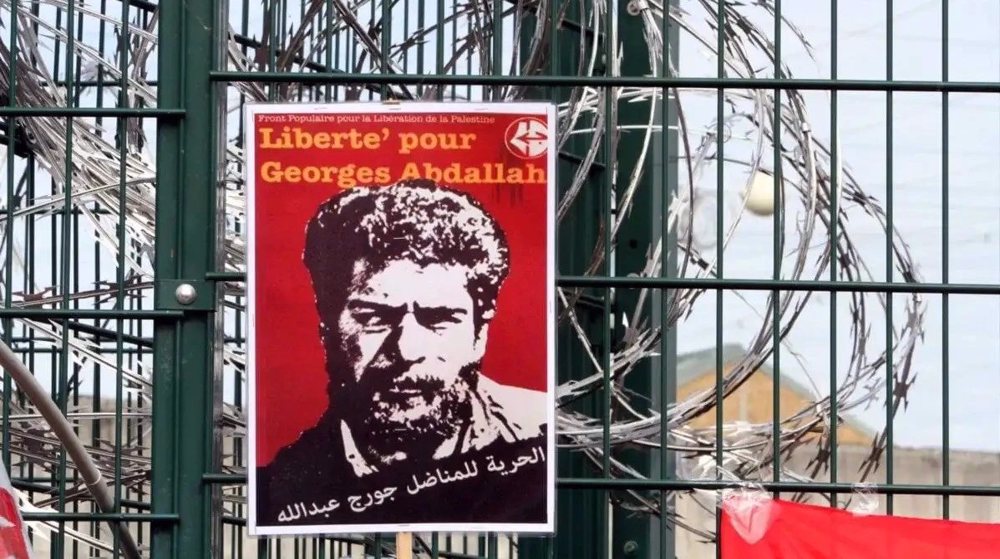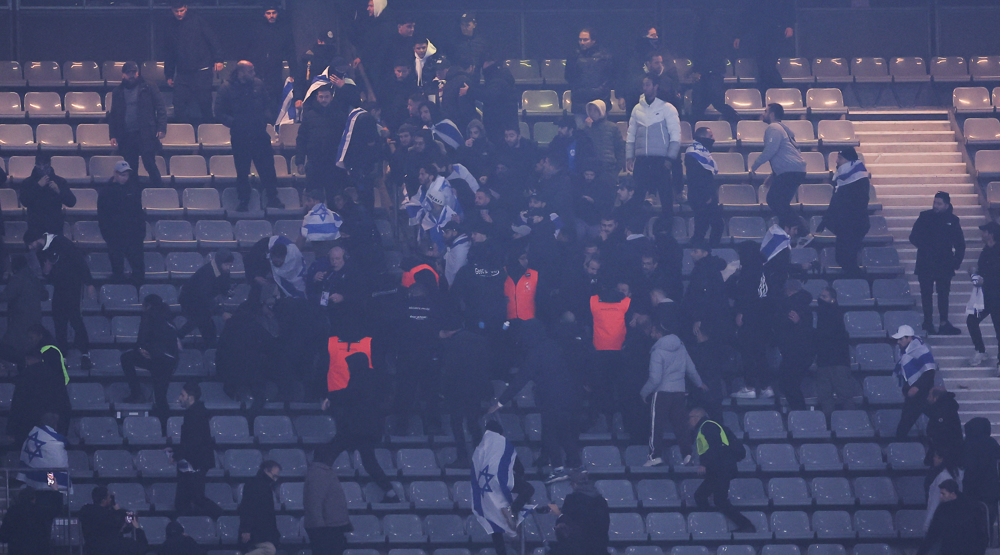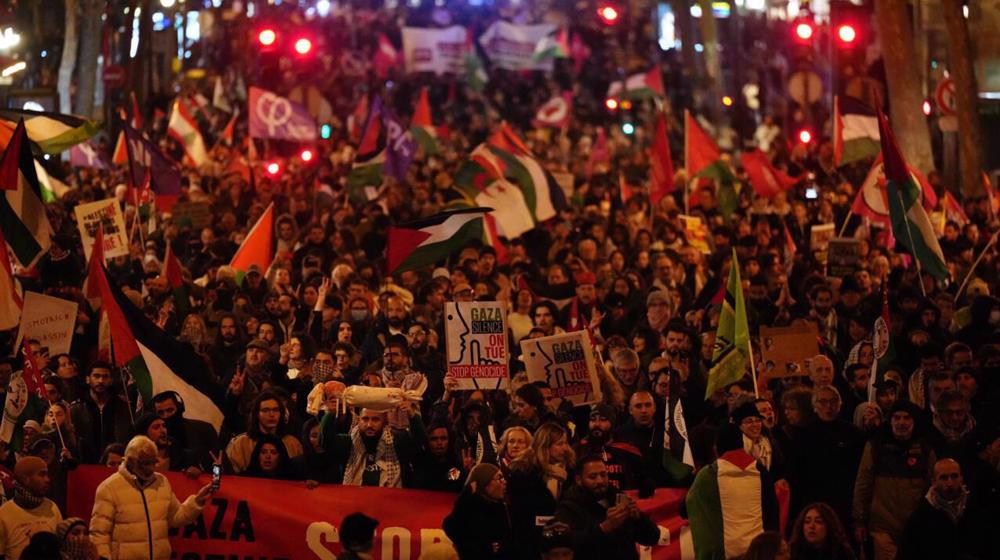French cities hit by protests against labor reforms
Tens of thousands have taken to the streets in Paris and other cities across France to show their objection to an imminent overhaul of national labor law.
The protest rallies on Thursday were part of the French labor force's efforts to mount pressure on President Emmanuel Macron to reconsider his reforms before they are put into effect by the government.
Trade unions say the long-touted changes that will give more power to employers to hire and fire workers are biased against them.
The rallies held in many major cities such as Nantes, Rennes and Lille came after hundreds of thousands of workers last week took part in the first street protests since Macron was elected in May.

The labor protests in Paris and Nantes on Thursday got violent after police fired tear gas at the demonstrators to disperse them.
More protests are due on Saturday at the behest of the hard-left political party France Unbowed which has threatened to gradually add on to the pressure by organizing bigger rallies if the workers' demands are not met.
"What's important today and in the days and weeks ahead is that the movement gets bigger," said Philippe Martinez, the head of the Communist-backed General Confederation of Labor (CGT) union behind Thursday's marches.
The government, however, says the reforms will go ahead as planned.
Macron insisted in New York Wednesday that the huge majority of French people, who voted for him in presidential and parliamentary elections in May and June, supported his labor reforms.

Strict labor code
The reforms are designed to give employers more flexibility to negotiate pay and conditions with their workers while reducing the costs of firing staff.
Macron believes his labor reforms will bring the unemployment rate down from the current long-standing 9.5 percent.
The International Monetary Fund (IMF) on Thursday backed Macron's plans, saying labor reforms, joined by tax cuts and a cut in public spending, will increase economic growth in France.
France has historically been proud of its strict labor code, which has protected employees' rights.

Businesses are opposed to the strict labor code. They say the code has weakened economic progress and impeded investment and job growth in France. Workers and unions view Macron's changes to the labor code as a "social coup d'etat."
Biden allows Ukraine to use US missiles to strike inside Russia: Sources
OIC condemns Israel’s war crimes against Palestinians in Gaza
Iran FM slams reported EU plans to impose sanctions on IRISL
VIDEO | Press TV's News Headlines
Lebanon army says Israeli attack kills two soldiers in south
Iran launches renovation project at its main oil export terminal
Trump's re-election will not affect Iran-China strategic ties: Leader’s aide
VIDEO | Jordan hunger strikers demand resumption of Gaza aid distribution










 This makes it easy to access the Press TV website
This makes it easy to access the Press TV website